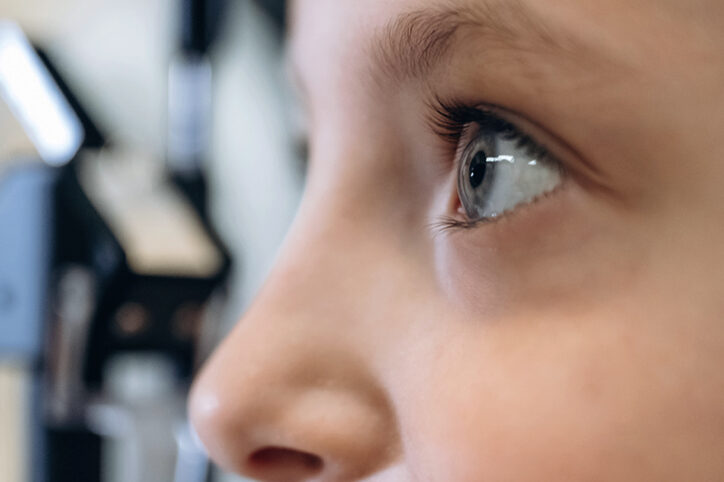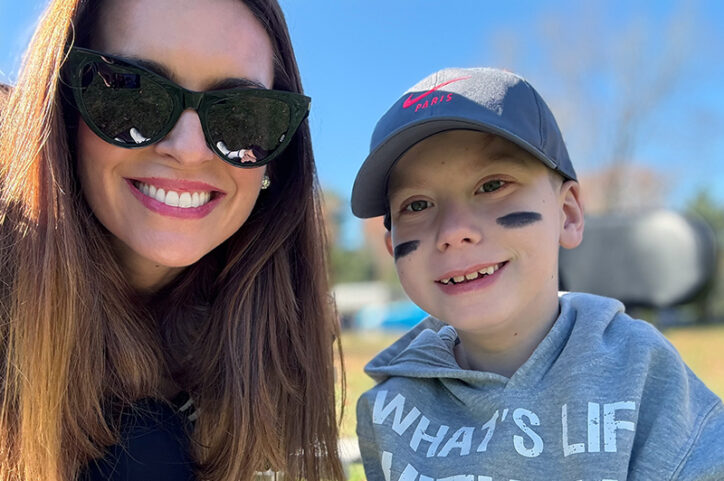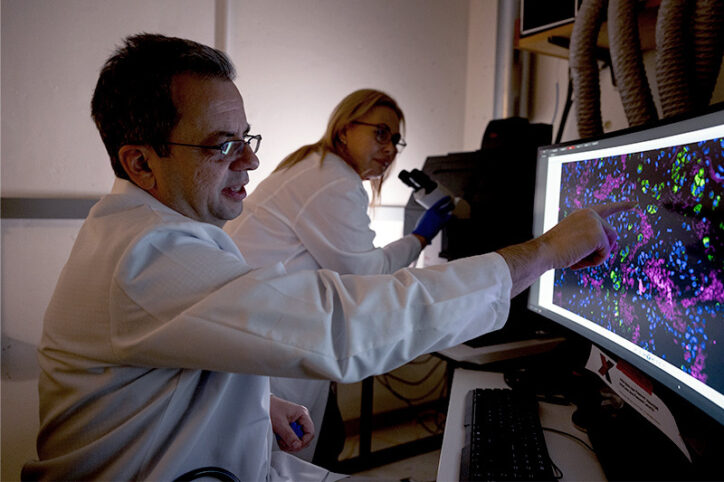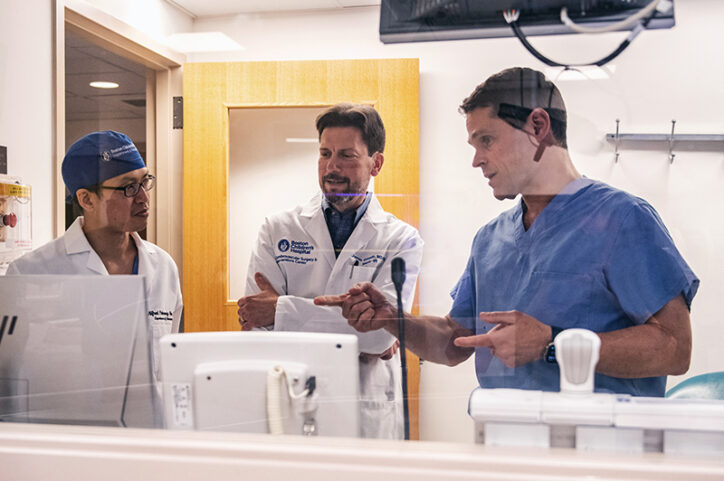Archive for genetics and genomics
New research sheds light on the genetic roots of amblyopia
For decades, amblyopia has been considered a disorder primarily caused by abnormal visual experiences early in life. But new research from Mary Whitman, MD, PhD, pediatric ophthalmologist in the Department of Ophthalmology at Boston Children’s Hospital, and her colleagues suggests the story is more complicated. “There may be underlying neurodevelopmental differences in children with amblyopia ... Read More about New research sheds light on the genetic roots of amblyopia
Tagged: amblyopia, genetics and genomics, ophthalmology
Thanks to Carter and his family, people are talking about spastic paraplegia
Nine-year-old Carter may be the most devoted — and popular — sports fan in his Connecticut town. “He loves all sports,” says his mother, Natalie. Whenever one of Carter’s buddies has a game, Natalie’s phone lights up with texts asking if he can attend. As his friends play, Carter cheers and gives high fives from his ... Read More about Thanks to Carter and his family, people are talking about spastic paraplegia
Genetic causes of congenital diarrhea and enteropathy come into focus
Congenital diarrheas and enteropathies are rare and devastating for infants and children. Treatments have consisted mainly of fluid and nutritional management. But in recent years, targeted dietary and drug therapies have emerged based on genetic discoveries. Now, research led by Boston Children’s Hospital, The Hospital for Sick Children in Toronto, and UCLA takes a major ... Read More about Genetic causes of congenital diarrhea and enteropathy come into focus
Genomic sequencing transforms a life: Asa’s story
Asa Cibelli feels like he’s been reborn. The straight-A middle schooler plays basketball and football, does jiu jitsu, is learning guitar, and can solve a Rubik’s cube in 40 seconds flat. But he once wondered if he’d ever feel better. From birth, Asa experienced chronic abdominal pain and severe diarrhea. The many doctors he saw ... Read More about Genomic sequencing transforms a life: Asa’s story
A new tool could exponentially expand our understanding of bacteria
How do bacteria — harmless ones living in our bodies, or those that cause disease — organize their activities? A new study, combining powerful genomic-scale microscopy with a technical innovation, captured which genes bacteria turn on in different situations and in different spatial environments. The technology, described January 23 in Science, promises to take the ... Read More about A new tool could exponentially expand our understanding of bacteria
Tagged: antibiotics, genetics and genomics, imaging, microbes, microbiome
Phenylketonuria: Giving treatment a second chance
Phenylketonuria (PKU) was once a common cause of intellectual disability. Children born with this metabolic condition lack phenylalanine hydroxylase (PAH), the enzyme needed to break down the amino acid phenylalanine (phe). Instead, phe builds up to levels harmful to the brain. PKU was the original condition tested for when newborn screening was piloted in Massachusetts ... Read More about Phenylketonuria: Giving treatment a second chance
Tagged: genetics and genomics, metabolism, rare disease
Mapping cells to create targeted treatments for interstitial lung disease
John Kennedy, MD, MSc, remembers the relative simplicity of his first genetic mapping project. In a Harvard Medical School lab, he helped map a gene for the neurological disease mucolipidosis type IV in less than a year. “I was fresh out of college. I thought with the global momentum of the Human Genome Project, we were going to ... Read More about Mapping cells to create targeted treatments for interstitial lung disease
Changing lives through genetics: The Children’s Rare Disease Collaborative
A 14-year-old girl was having back pain after a car accident and visited an orthopedic clinic at Boston Children’s Hospital. In the course of her care, she joined the Children’s Rare Disease Collaborative (CRDC), a hospital-wide effort to enroll children and adults with rare diseases in genetic studies. Genetic testing revealed that both she and ... Read More about Changing lives through genetics: The Children’s Rare Disease Collaborative
Tagged: diagnostics, genetics and genomics, rare disease, research
Mutations during prenatal development may contribute to schizophrenia
Schizophrenia is known to have a genetic component, and variants in 10 genes have been identified as markedly increasing schizophrenia risk. But together, these genes account for under 5 percent of cases. Now, a pilot study in the journal Science suggests another important contributor to schizophrenia: distinctive patterns of non-inherited (somatic) mutations. These mutations appear ... Read More about Mutations during prenatal development may contribute to schizophrenia
Tagged: genetics and genomics, neuroscience, schizophrenia
Breaking new ground in cerebral cavernous malformation research
Children with cavernous malformations face unique treatment challenges due to factors such as the malformation’s location, size, risk of bleeding, and the complexities of pediatric tissue development. To address these issues effectively, advanced diagnostics and precise interventions are essential. This is why Ed Smith, MD, and the team at the Cerebrovascular Surgery and Interventions Center ... Read More about Breaking new ground in cerebral cavernous malformation research











